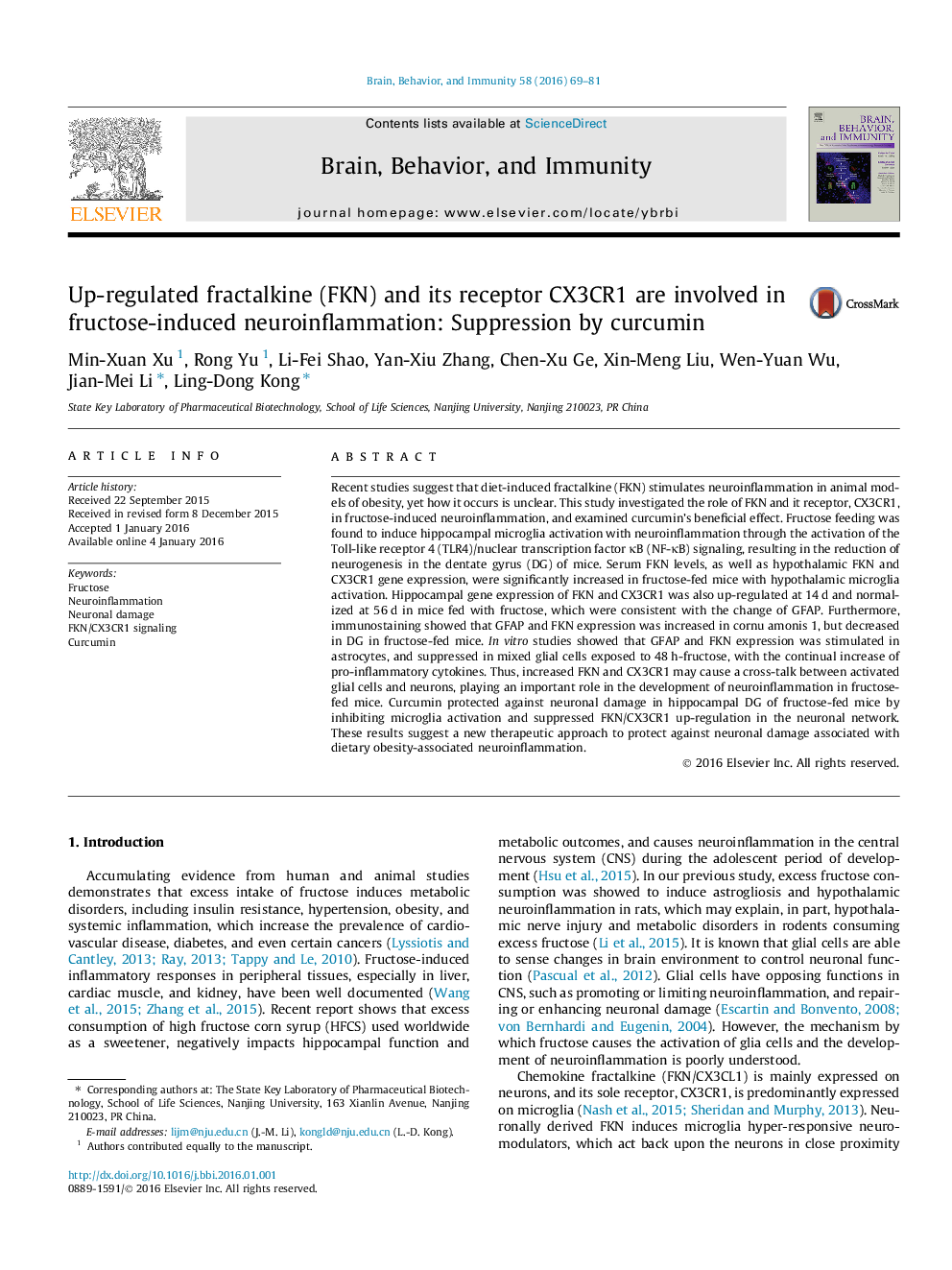| کد مقاله | کد نشریه | سال انتشار | مقاله انگلیسی | نسخه تمام متن |
|---|---|---|---|---|
| 5040968 | 1473909 | 2016 | 13 صفحه PDF | دانلود رایگان |

- Fructose intake stimulated hypothalamic and hippocampal neuroinflammation in mice.
- Fructose feeding caused neuronal damage in the dentate gyrus (DG) of mice.
- FKN/CX3CR1 upregulation was involved in the neuroinflammation in fructose-fed mice.
- Curcumin prevented neuronal damage by inhibiting neuroinflammation in these mice.
- Curcumin suppressed the upregulation of FKN/CX3CR1 in fructose-fed mice.
Recent studies suggest that diet-induced fractalkine (FKN) stimulates neuroinflammation in animal models of obesity, yet how it occurs is unclear. This study investigated the role of FKN and it receptor, CX3CR1, in fructose-induced neuroinflammation, and examined curcumin's beneficial effect. Fructose feeding was found to induce hippocampal microglia activation with neuroinflammation through the activation of the Toll-like receptor 4 (TLR4)/nuclear transcription factor κB (NF-κB) signaling, resulting in the reduction of neurogenesis in the dentate gyrus (DG) of mice. Serum FKN levels, as well as hypothalamic FKN and CX3CR1 gene expression, were significantly increased in fructose-fed mice with hypothalamic microglia activation. Hippocampal gene expression of FKN and CX3CR1 was also up-regulated at 14 d and normalized at 56 d in mice fed with fructose, which were consistent with the change of GFAP. Furthermore, immunostaining showed that GFAP and FKN expression was increased in cornu amonis 1, but decreased in DG in fructose-fed mice. In vitro studies showed that GFAP and FKN expression was stimulated in astrocytes, and suppressed in mixed glial cells exposed to 48 h-fructose, with the continual increase of pro-inflammatory cytokines. Thus, increased FKN and CX3CR1 may cause a cross-talk between activated glial cells and neurons, playing an important role in the development of neuroinflammation in fructose-fed mice. Curcumin protected against neuronal damage in hippocampal DG of fructose-fed mice by inhibiting microglia activation and suppressed FKN/CX3CR1 up-regulation in the neuronal network. These results suggest a new therapeutic approach to protect against neuronal damage associated with dietary obesity-associated neuroinflammation.
Journal: Brain, Behavior, and Immunity - Volume 58, November 2016, Pages 69-81